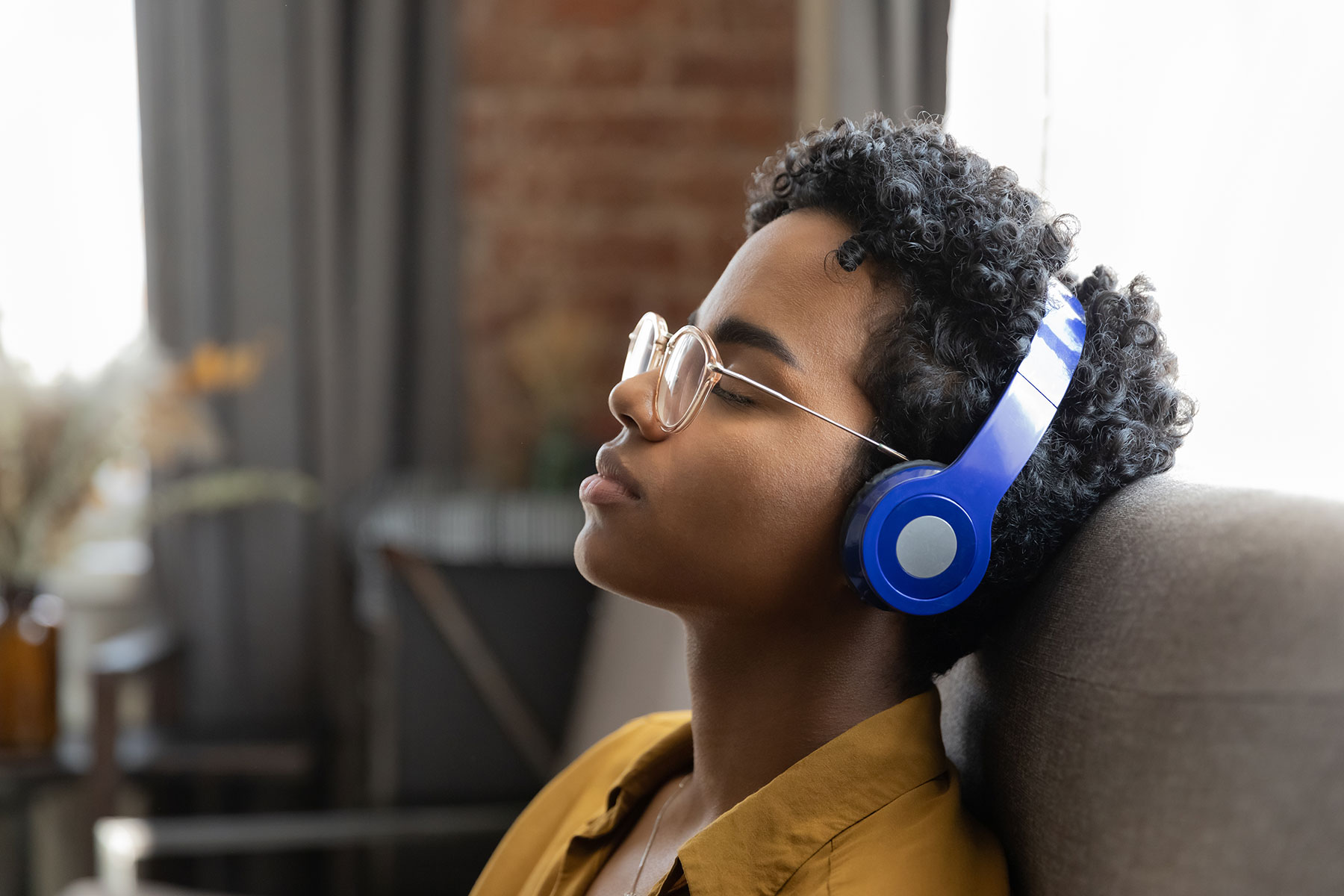Music has powerful mental effects and can quickly impact a person’s mood. A music therapy program uses the inherent mood-enhancing properties of music to help improve mental health and overall well-being. The psychological effects of music are powerful and far-reaching. Music therapy is essential to comprehensive mental health treatment for many mental health disorders, including depression.
Harmony Hills is a holistic mental health treatment center providing evidence-based therapies like music therapy to help individuals overcome the symptoms of mental illness that interfere with their daily functioning. We have carefully designed our programs to help clients uncover and process the roots of mental health issues like depression so they can live their best lives. Contact our team at 855.494.0357 to learn more about the benefits of music therapy for depression.
How Does Music Therapy Help with Mental Health?
Music therapy is the clinical use of music to achieve therapeutic goals. A trained music therapist leads music therapy in individual and group settings. Music therapy can be active, where the focus is on creating music, or passive, which focuses on listening and responding to music. Most music therapists use a combination of techniques.
Some of the approaches to music therapy include:
- Cognitive-behavioral music therapy (CBMT) uses music to reinforce certain behaviors and reshape others. This structured approach can involve singing, dancing, playing instruments, and listening to music.
- Analytical music therapy encourages improvisational musical “dialog” to express unconscious thoughts and feelings through singing or playing an instrument.
- Community music therapy occurs in a group setting and requires active participation from all members to facilitate change on a community level.
- Bonny method of guided imagery and music (GIM) uses classical music to stimulate the imagination. Participants explain the memories, feelings, and sensations they experience while listening to music.
- Benenzon music therapy combines the process of making music with elements of psychoanalysis. Participants search for their musical sound identity, which describes external sounds that reflect their psychological state.
Music therapy is used in various settings, including hospitals, prisons, schools, rehabs, and mental health treatment centers, to address physical, psychological, and behavioral issues in people of all ages. Anyone can engage in and benefit from music therapy. Music therapy influences an individual’s physical, emotional, psychological, social, spiritual, and cognitive well-being.
How Does Music Therapy Help with Depression?
Music therapy is a powerful intervention for helping individuals manage stress and reduce the symptoms of depression. You might think that listening to sad music when depressed would make someone feel worse, but studies have shown that people with depression prefer sad music, reporting that they find it soothing and uplifting.
Listening to music encourages the production of dopamine, a hormone that makes us feel good, and endorphins, which can induce happiness and relieve pain. Music therapy is not a cure for depression but offers short-term benefits by improving mood and fostering self-expression. Other benefits of music therapy include:
- Development of coping skills to manage thoughts and feelings
- Self-reflection and self-regulation
- Increased motivation and happiness
- Decreased blood pressure
- Pain management
- Improved memory
- Enhanced social and communication skills by sharing music with others
- Reducing stress and tension
- Encouraging engagement in therapy
Music therapy does not rely on verbal communication, so it is highly beneficial for individuals who struggle with verbal expression. Music therapy is non-invasive and can be used with people of all ages, backgrounds, cultures, and beliefs.
Music Therapy for Depression Activities
Music therapy for depression activities includes active and passive methods to help individuals express themselves, communicate feelings, problem-solve, and manage symptoms. These activities may include:
- Songwriting or improvisation – Clients create their songs using lyrics, melody, and rhythm as an outlet for emotions.
- Music-guided discussion – Participants listen to specific music and then discuss the thoughts and feelings the music evokes for them.
- Instrument playing – Clients can use various instruments, including drums, guitar, or piano, to express themselves without needing musical experience.
- Movement-based activities – Dancing and moving to music can help individuals feel more connected to their bodies and reduce physical symptoms of depression like muscle tension.
Music therapy is a powerful tool that can be used as part of a comprehensive mental health treatment plan for depression. Music can bring joy, comfort, and self-awareness to individuals struggling with mental illness. If you or a loved one is living with depression, consider incorporating music therapy into your treatment plan for improved well-being and overall quality of life.
Contact Harmony Hills to Learn More About Music Therapy and Depression Treatment
At Harmony Hills, we believe effective therapy can be enjoyable. We offer many holistic and experiential therapies to supplement our evidence-based mental health and dual diagnosis treatment programs. Along with our music therapy program, we offer the following:
- Art therapy program
- Family therapy
- Yoga and meditation
- Wellness and fitness programs
- Nutritional counseling
- Life skills training
Our serene 80-acre rural campus provides the best that nature offers and boasts numerous resort-style amenities to enhance your therapeutic experience. Contact our team today to learn more about the benefits of music therapy for depression treatment.







